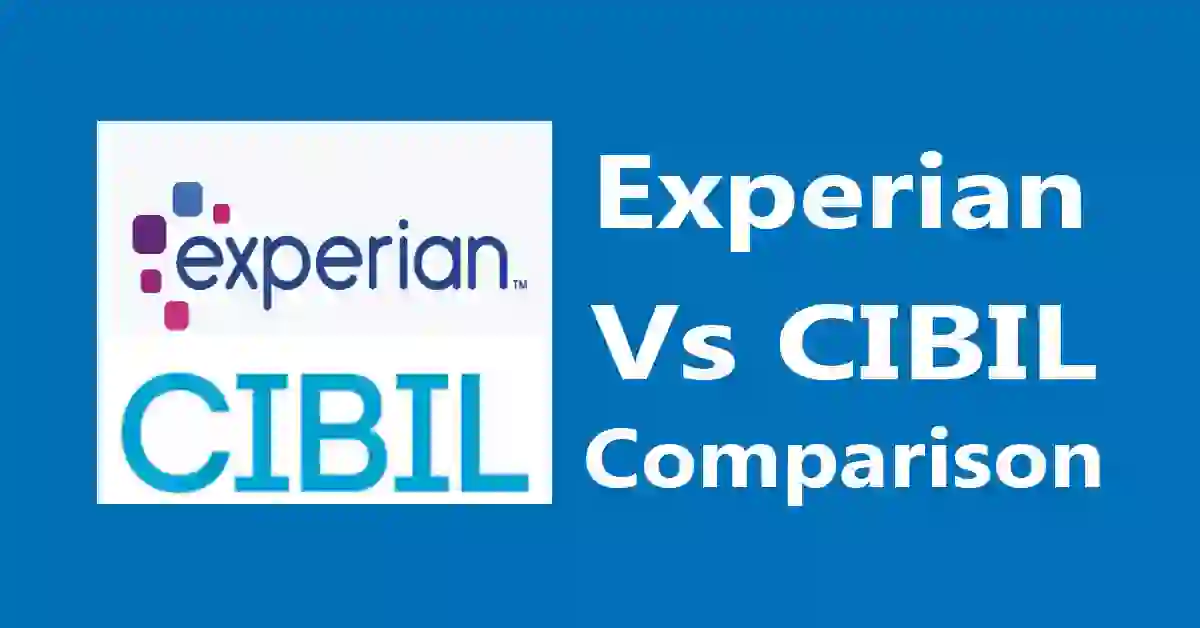Experian vs CIBIL: A Comprehensive Comparison
Credit bureaus occupy a central position in the credit sector as they assembled important information that aid the lenders in arriving at credit decisions. Among all the credit bureaus across the world, Experian and CIBIL (Credit Information Bureau (India) Limited) are the leading two which play a significant role in their areas. This blog post analyses the differences between the services offered by Experian, CIBIL, their working model, and their effects on consumers and creditors.
There are companies which compile information related to the credit behaviour of consumers and utilize it to generate credit reports and credit scores. These reports and scores therefore describe an individual’s creditworthiness and are used by the lenders to evaluate credit risk. Despite these established facts, the data offered by such bureaus has to be accurate and extensive to an extent that determines credit approval and rates of interest as well as employment.
Overview of Experian
History and Global Presence
Experian started in 1996 as a global credit reference agency and is one of the big three credit bureaus. Based in Dublin, Ireland it has presence in over 37 countries and it has its clients all over the world. The services that are offered by Experian consist of credit reporting, decision analytics, marketing services, and consumer services.
Services Offered
- Credit Reports and Scores: Experian provides credit reports and credit scores based on the credit history of the consumers, which are useful to lenders.
- Identity Theft Protection: Experian offers credit monitoring services to the consumers to avoid cases of identity theft.
- Data and Analytics: Here, at Experian, data analytics services are provided that assist the business in their decision-making process.
- Marketing Services: Experian helps the business organization to identify the right clients to market their products through data led marketing services.
Methodology and Scoring Model
Credit refer to the use of FICO scoring model among others in computing for credit scores of persons using the services of Experian. The FICO score is in the scale of 300 to 850; the higher the FICO score, the better the credit rating of the consumer. Elements that determine the score comprise a payment history, the number of outstanding balances, length of credit record, new credit-opening, and the kinds of credit accounts being utilized.
Overview of CIBIL
History and Regional Influence
CIBIL was set up in 2000 and it became India’s first credit information company. Situated in Mumbai, India it forms part of TransUnion, an international company that deals in information and insights. CIBIL has a pivotal position in the financial system of India, as it is the responsible report provider for banks and other fi’s that are involved in the financial market as well as for the consumer themselves.
Services Offered
- Credit Reports and Scores: Thus CIBIL assists the lenders by offering detailed credit reports and credit scores regarding the consumers credit rating.
- Commercial Credit Information: CIBIL provides credit information about the businesses and helps in the credit decisions in the business world.
- Market Insights and Analytics: CIBIL offers consumer credit information and market data analysis to the clients to support their observations on the consumers and the market.
- Consumer Services: CIBIL has been providing the consumers with services such as consumers’ credit reports and credit scores among other related information and resources.
Methodology and Scoring Model
The kind of credit scores used by CIBIL are produced through a scoring model that is unique to CIBIL and is referred to as the CIBIL TransUnion Score. This score varies between 300 and 900; the higher figure meaning the lower credit risk level. This score is arrived at by considering aspects like the outstanding balances, timely payments, types and number of credit accounts, and length of credit history.
Key Differences Between Experian Vs CIBIL
Geographic Focus
- Experian: Global operation, however, it is most active in North America and Europe and has operations in the Asia-Pacific region.
- CIBIL: This report is mainly on the Indian market, analyzing the requirement of the Indian populace and the local finance.
Scoring Range
- Experian: Top model is FICO scoring model with 300 to 850 scale.
- CIBIL: Uses the credit bureau score which is the CIBIL TransUnion Score ranging from 300 to 900.
Data Sources
- Experian: Purchases information from a vast network of worldwide Credits sources, banks, governments and other Credit bureaus.
- CIBIL: It’s majorly gathers information on the Indian banking sector as well as banking, non-banking financial companies NBFC and housing finance companies.
Market Penetration and Influence
- Experian: Thus, Experian has a considerable impact on the international credit market since it provides information to international companies and lenders.
- CIBIL: Is market leader in India where it is the most used credit bureau by the Indian banks and financial institutions.
Impact on Consumers
Impact on Consumers
Access to Credit Information
While both Experian and CIBIL offer consumers’ reports and credit scores to the relevant parties. This access enables consumer improve on their credit status, review any inconsistencies and make the necessary adjustments to have a healthy credit status.
Identity Theft Protection
As for identity theft protection, Experian includes all kinds of services and tools to assist the consumer in tracking the credit report for suspicious activity. CIBIL, although providing credit scores of consumers as like that of credit bureaus, is mainly involved in offering credit information as well as credit counselling to individuals.
Credit Education
Both bureaus provide the consumer with learning materials in order to comprehend credit score and credit report. The consumer services and online resources of Experian include credit education. CIBIL also provides other services in the nature of disseminating information, Where CIBIL organizes Credit Management Tips and helps Indian consumers to enhance their financial awareness.
Impact on Financial Institutions
Risk Assessment
Experian or CIBIL are important for the financial instituions to measure the credit risk while issuing loans to consumers or businessmen. The credit reports and scores given by these bureaus assist the lending institutions in coming to better decisions that will minimize cases of bankruptcy and other bad figures.
Fraud Detection
Through state of the art data analytics, and identity theft related solutions, Experian is able to assist financial institutions in the fight against fraud. CIBIL also helps in the identification of frauds as it offers the most current information to credit providers relating to consumers and business entities.
Market Insights
Their services include market insights and analytics for the financial institutions and credit markets amongst others. These services assist those lenders to gauge market conditions and consumers’ behaviors, as well as risks that may prevail in a certain market area so as to ensure they design their products and services in a manner that meets the need of their consumers.
Challenges and Criticisms
Data Accuracy
Another usual reality on credit bureaus such as Experian and CIBIL is the question of accuracy of data. Misinformation or stale information adversely affects the credit profiles and the access to credit. Each bureau is dedicated to perfecting the accuracy of data and promoting frequent checks of credit reports by consumers and the reporting of error(s).
Data Security
Data security is another issue that companies seriously consider due to the rising dangers of cyber threats They are responsible for gathering information on the credit standing of the clients. Experian and CIBIL spend a lot of resources on security measures to ensure that the customer’s data is not accessed by unauthorized persons. Yet, data breaches and cyber-attacks are present threats that never disappear, and businesses have to invest in the latest security solutions.
Consumer Awareness
However, despite the existence of credit information and educational resources, there are still people who remain ignorant about the credit scores and their effects on their financial condition. To some extent, this is the challenge that the consumers face regarding the credit information that is provided to both Experian and CIBIL.
The Future of Credit Bureaus
There are several prospects to credit reporting that can be described as trends to watch in the credit bureau market in the future. Some of the key firms that are implementing changes include Experian as well as CIBIL and such changes involve the use of technology for improvement of services output as well as meeting the new needs of the market players in the subsector.
Technological Advancements
Artificial Intelligence and Machine Learning: These companies such as Experian and CIBIL have integrated the use of artificial intelligence and machine learning to their analytics and scoring. These technologies assist in enhancing the credit score accuracy and enabling a better understanding of consumers’ behaviors.
Blockchain Technology: Blockchain is viewed as the solution to redesign the workings of the credit information sharing method. Experian and CIBIL are therefore considering applying the use of blockchain in the provision of credit information services as a way of improving on security and transparency.
Digital Platforms: These are fairly obvious developments we are witnessing where through digital platforms and mobile applications consumers are able to easily get their credit information and the state of their financial profile. Currently both Experian as well as CIBIL are expanding their digital services to improve the interaction and exchange of credit information to the users.
Regulatory Changes
More regulators are turning their attention towards the protection of consumers as well as their personal information. Currently there are changing regulations that Experian and CIBIL have to follow in regard to the protection of consumer data in addition to the policies and procedures to observe while exercising their operations.
Expanding Services
Bureaus of credits are moving away from the simple task of reporting credit scores. As for the future development, both Experian and CIBIL are looking at such novelties as alternative credit data, which is collected from sources other than credit tapes, for instance, payment behavior in utility bills or rental payments. It sought to incorporate more check points on consumers’ creditworthiness especially those within the unorthodox category with little or no credit records.
Conclusion
Experian and CIBIL are among the largest credit-bureau organizations of the globe; they have a particular responsibility in their operational regions. Though Experian functions worldwide and it provides many services needed for credit risk assessment, CIBIL dominates in the Indian market owning to its credit information and analytics services. It is noteworthy that bureaus work to support the ‘financial market’, namely as tools to assist both consumers and financial organisations in decision-making processes.
With the constant development of the financial market, Experian and CIBIL look to the future incorporating technological and innovative solutions to improve their services and satisfy clients’ demand. Through the provision of credit information, these credit bureaus help in elimination of barriers in credit flow and hence enhance financial inclusion and sound financial systems.





